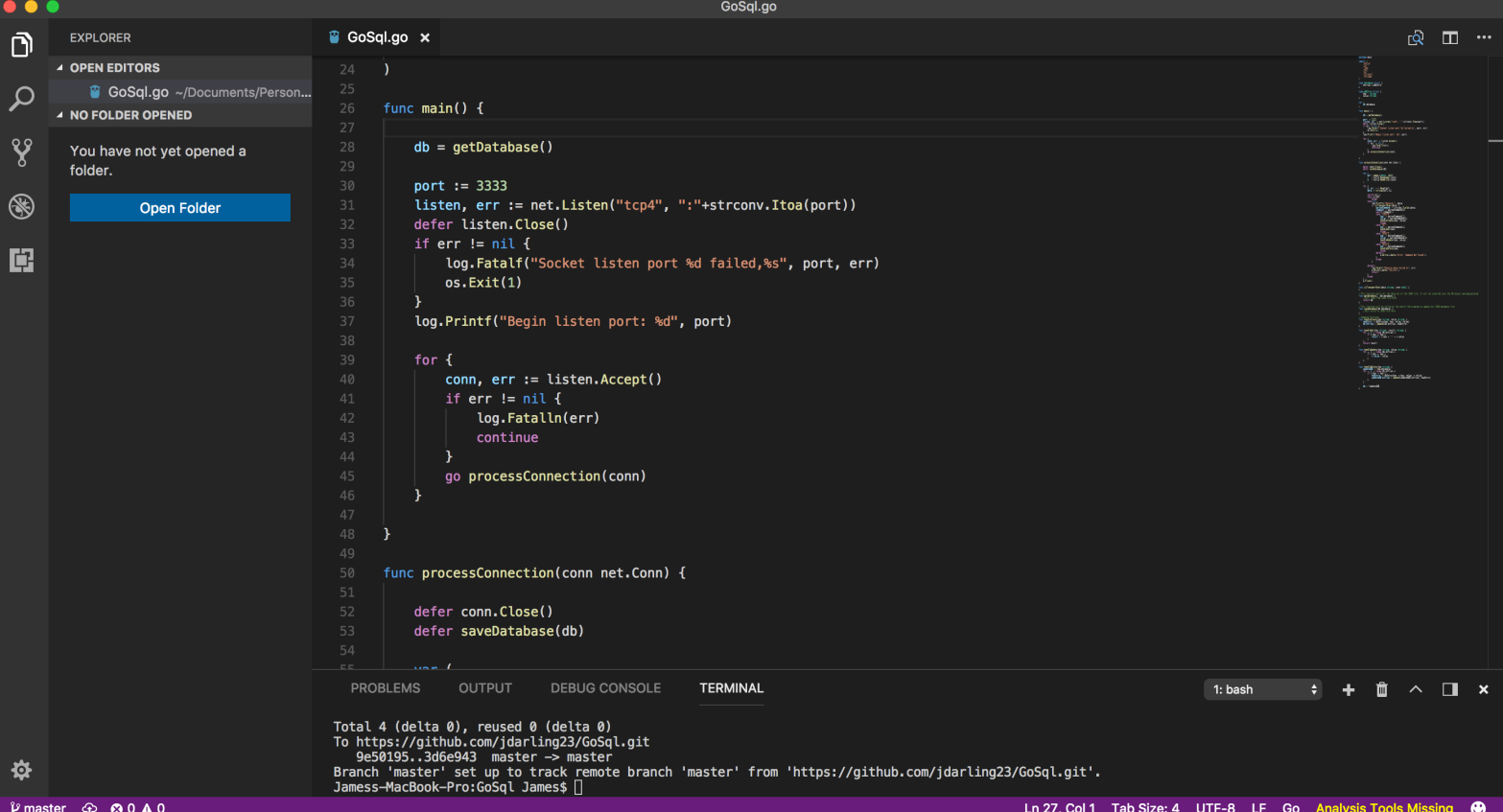Last year, I messed around with the machine learning features in the Python library scikit. I created a program that could tell the difference between LeBron James and Russel Westbrook. Using stats from the first half of the season, the program could determine which stats from games in the second half of the season belongedContinue reading “100 Days of Code, Day 17: Machine Learning, LeBron, and Russ Part 2”
Monthly Archives: May 2018
100 Days of Code, Day 16: Lessons Learned so Far
Today I wrapped up development on integrating the Angular app with the GoSQL database. It’s been a long time coming on this one! Everything is now on GitHub if you’d like to see the code. After finishing three small projects in three different languages, there’s a few things I’ve learned that I wanted to share.Continue reading “100 Days of Code, Day 16: Lessons Learned so Far”
100 Days of Code, Days 11-15: WebAPI to the Rescue!
This weekend, I focused on solving the integration issues between my GoSQL database and my Cost Calculator app. To quickly summarize, I was having ptoblems making a TCP/IP call from the app while it was running in the browser as well as with how the app would handle returned data. The solution… As mentioned inContinue reading “100 Days of Code, Days 11-15: WebAPI to the Rescue!”
100 Days of Code, Day 10: With Integrations, the Devil is in the Details
Well, today I have hit a snag. Integrating the GoSQL database with the Cost Calculator app is proving to be a challenge. The 100 Days of Code Challenge only dictates that I spend an hour a day on coding outside of work. Unfortunately, an hour is usually all the time that I have. There areContinue reading “100 Days of Code, Day 10: With Integrations, the Devil is in the Details”
100 Days of Code, Day 9: Child and Parent Components in Angular
Day 9 was spent on final edits to the components in the Cost Calculator Angular app from Days 4-8. A big part of making this app more modular and organized was breaking down the app into child and parent components. Why would you do that? Decoupling portions of the code means that changes only haveContinue reading “100 Days of Code, Day 9: Child and Parent Components in Angular”
100 Days of Code, Days 4-8: Keeping Track of Your Costs with Angular
The wait is over! After a rewarding time rebuilding a house in Houston with the Credera team, I’m back and ready to give you some insights into what I’ve been coding over the last four days. I know everyone was on the edge of their seats all weekend preparing to learn what I’ve been upContinue reading “100 Days of Code, Days 4-8: Keeping Track of Your Costs with Angular”
100 Days of Code, Day 3: It’s Alive!
After 3 days, I finally have working code! My NoSQL database (affectionately known as GoSQL) can receive database commands and properly manipulate data. It may not be pretty but it’s still really rewarding to have a “finished” product in programming language that I had no knowledge of on Monday. Finishing the project required adding theContinue reading “100 Days of Code, Day 3: It’s Alive!”
100 Days of Code, Day 2: Building a NoSQL Database in Go
Today was a continuation on building the NoSQL database in Go that I started on Day 1 of the challenge. There are several areas that I needed to build out after setting up the bones of the project yesterday. I needed to structure the data, define the individual commands, and set up the socket toContinue reading “100 Days of Code, Day 2: Building a NoSQL Database in Go”
100 Days of Code, Day 1: Starting off with ‘Go’
I’ve been away from creating content for awhile. In the past year I graduated from college, got engaged, and began work as a technical consultant. Talk about a busy but memorable year! I’ve grown my ability to code immensely over the past year thanks to some wonderful mentors, helpful peers, and challenging opportunities at Credera.Continue reading “100 Days of Code, Day 1: Starting off with ‘Go’”
5 SQL Server Reporting Services Hacks That Everyone Should Know
SQL Server Reporting Services (SSRS) is a powerful set of tools for distributing data within an organization. Users can pair SSRS with the report editor in Visual Studio to develop a variety of reports. But with such a range of reports, simple tasks, such as repeating a header or adding a default parameter value, areContinue reading “5 SQL Server Reporting Services Hacks That Everyone Should Know”








